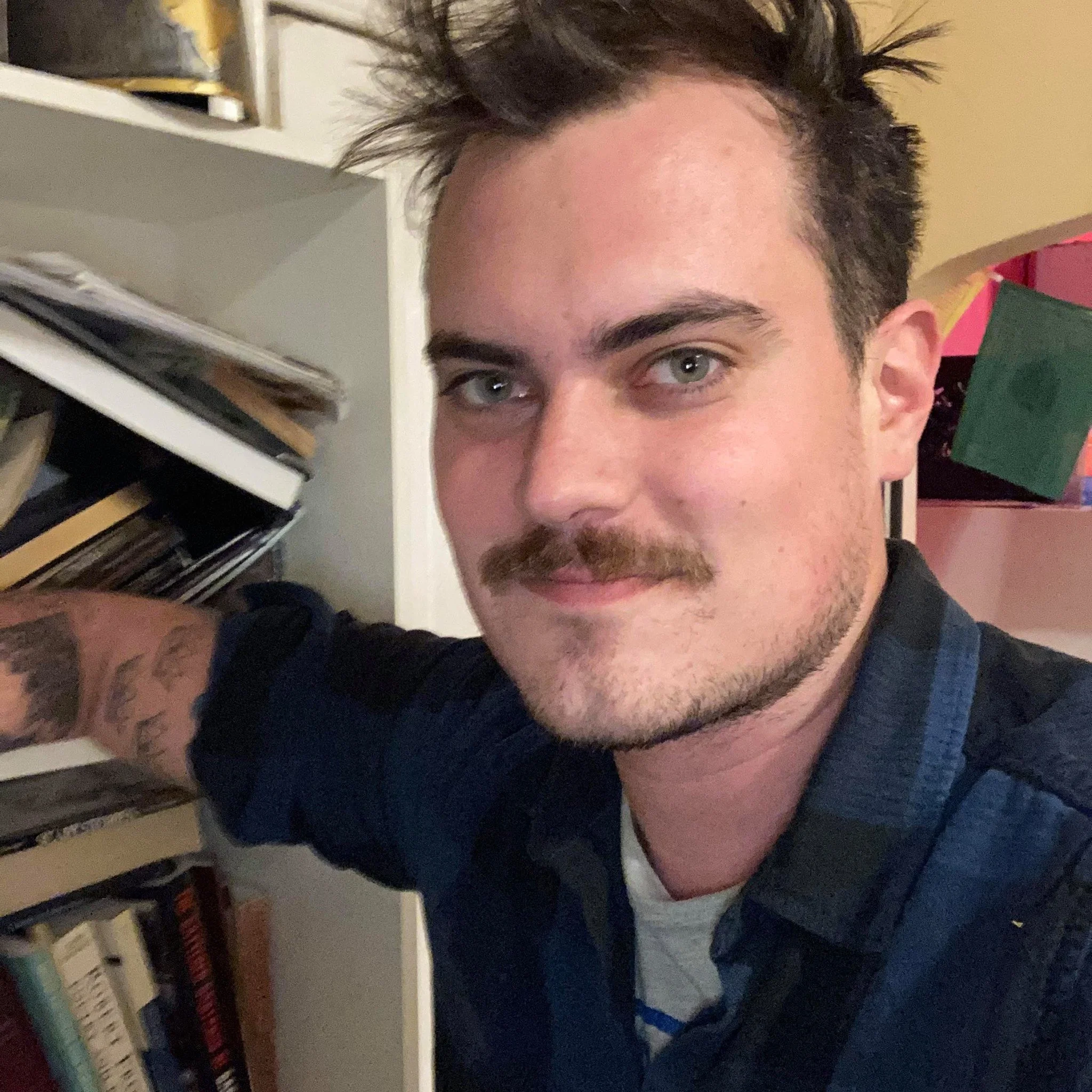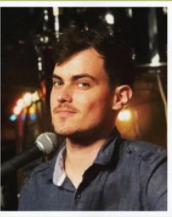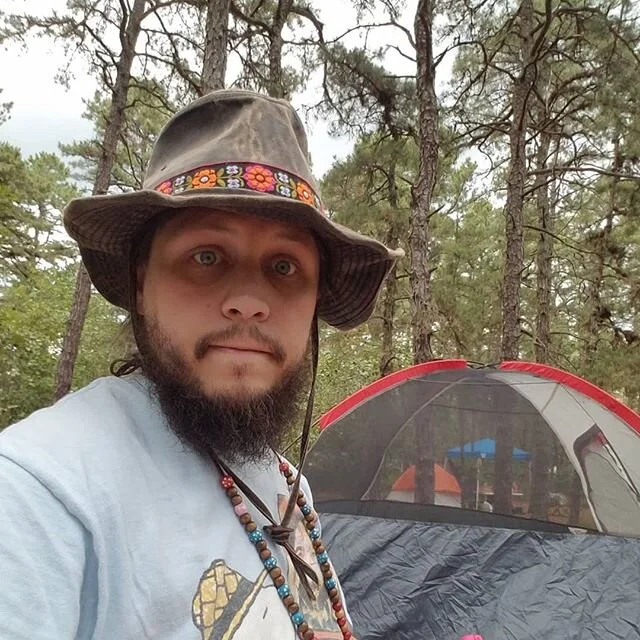You Don’t Belong to Anyone
by Sean Lynch
We argued in bed
about what Hart Crane thought
when he drowned to death
until you threw a pen
at me, hit me in the chest
marking a single ink dot on my skin.
I wanted to cover you
in yellow sticky notes
writing random words to fill
the spaces between your freckles.
I wanted to stuff
flower petals under
your fingernails.
I wanted you.
Your tongue clicked
like a machine
as we shared music
from childhood funerals.
You, an expert oceanographer
in your slumber, and I, a whale
swimming away
from a thunderstorm.
There was a cyclone in your coffee cup
and your water painted thighs swirled
around me, holding me down
to the sea floor until I couldn't think
anymore. Until I couldn't breathe.
How would you describe your poetic aesthetic? What inspires you?
I would describe my poetic aesthetic by remixing the meme, “reject modernity, embrace tradition” into, “reject post-modernity, embrace modernity.”
What inspires me most is absolute, abject despair. The kind of feeling that you think you can’t crawl out of, like existential anguish and suicidal ideation, or when you drop your toothbrush on the floor.
Do you have a process? How do you move from all possible blank page to finished work?
My process starts as a reaction, whether it’s to an event or something that I read. I do my best not to be derivative though. I try to be authentic, although whenever I get lost I go back to my classic favorites, like Pablo Neruda, Seamus Heaney, Gwendolyn Brooks, or W.B. Yeats, to remember how to write poetry well.
Do you go into a different mental space for writing haiku/senryu?
I definitely get into a different kind of mental space for writing haiku. My other writing is more interiority centric, (or maybe self-centered) so when writing haiku I have to transform my mindset to an entirely opposite kind of observation mode. One that focuses outwards instead of inwards. I’ve recently written two essays as introductions to anthologies about how haiku as a form works to develop your senses and actually helps hone other poetry writing, even if it’s subconscious.
From your work with the Nick Virgilio Writer’s House and Moonstone Arts to curating a number of other literary outlets, like Serotonin, you seem enmeshed in literary life. What does this work bring to your life and your writing?
Working for Nick Virgilio Writers House, Moonstone Arts Center, and Serotonin brings humility and gratitude to my life. On the other hand, it’s a bit detrimental to my own writing. I have little time for writing anymore, several manuscripts in drafts, and zero of my own submissions currently out there. That being said, my editing work brings me joy and fulfillment. I’m grateful to have the opportunities that I have and to be able to do the work that I do in the literary world.
How do you see the potential for poetry as a form of community engagement and about its potential to bring change to a community?
I don’t think I have the proper answer as far as poetry as a form of community engagement goes. Or about poetry’s potential to bring change to a community for that matter. My hopeful side would be positive about the subject. My cynical side would say that political activism, mutual aid, and social justice are efforts that must be pursued separately in a tangible manner.
Where can readers find more of your work and buy your books?
People can read my published work on my linktree: https://linktr.ee/seanlynchpoet and as far as my books go, two are out of print, and the other two, Broad Street Line and 100 Haiku, are still available to buy on Moonstone’s website. I’m currently looking for a publisher for my full length poetry collection, which is focused on dealing with grief after my mother’s death.
Sean Lynch is a poet and editor who lives in South Philly. His poems have appeared in journals including Apiary Magazine, Meow Meow Pow Pow, and Drunk Monkeys. He’s the founding editor of Serotonin, on the editorial board of Moonstone Arts Center, and Program Director of the Nick Virgilio Writers House.
“Catfish” John Wojtowicz grew up working on his family’s azalea and rhododendron nursery in the backwoods of what Ginsberg dubbed “nowhere Zen New Jersey.” Currently, he works as a licensed social worker and adjunct professor. He has been featured in the Philadelphia based Moonstone Poetry series, West-Chester based Livin’ on Luck, Mad Poets Society, and Rowan University’s Writer’s Roundtable on 89.7 WGLS-FM. Find out more at: www.catfishjohnpoetry.com.



